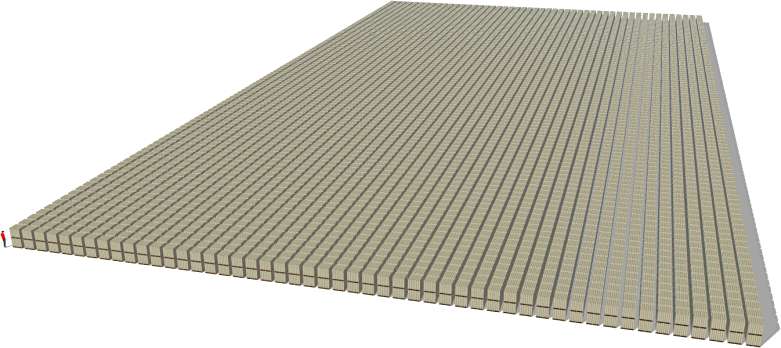 OK, before reading this, let’s comprehend just how much 780 billion dollars is. All these values seem to be lost in translation these days because the government throws around millions, billions, and now trillions of dollars in everyday lingo. So how much is 780 billion?
OK, before reading this, let’s comprehend just how much 780 billion dollars is. All these values seem to be lost in translation these days because the government throws around millions, billions, and now trillions of dollars in everyday lingo. So how much is 780 billion?
First off, after “ancillary” expenses to manage the 780 billion, this is easily going to cost taxpayers 1 trillion dollars. 1 trillion doesn’t really sound that much different from 1 million does it? Well, let’s assume for a minute we all have really long life spans, and really grand spending habits. If we spent 1 million dollars every single day, 365 days a year, on our lavish spending habit, every day since the day Jesus was born, we still would not have spent 1 trillion dollars. We would have to continue spending 1 million dollars per day until the year 2737 to finally spend the 1 trillion dollars.
Another example, for perspective. A million seconds is about 11½ days. A billion seconds is about 32 years, and a trillion seconds is 32,000 years.
So how does the government come up with 1 trillion dollars to “stimulate” the economy? If you are thinking “out of thin air”, you are precisely correct. More on this later…
— on to the article —
US senators reached agreement on a financial stimulus plan totaling about $US780 billion, Democratic lawmakers said.
Massachusetts Democrat John Kerry, emerging from a meeting of Senate Democrats at the Capitol tonight, called the agreement an important step and said senators hope to vote on it tonight.
“This is our best chance,”Senators have reached a tentative agreement on a financial stimulus plan of about $US780 billion, Massachusetts Democrat John Kerry said.
White House Chief of Staff Rahm Emanuel attended a meeting with Senate Democrats and left, smiling, without speaking to reporters. Jennifer Burita, an aide to Maine Republican Senator Susan Collins, said the agreement would be announced on the Senate floor.
Kerry called the agreement an “important step” and said the Senate hopes to vote on it tonight.
Before the meeting, Senator Kent Conrad of North Dakota said the plan being discussed doesn’t include about $US50 billion in funds for autos and homebuyers. Those were part of the $US900 billion-plus package debated in the Senate this week.
More




 The stock markets open and close; they have predictable hours. The same cannot be said for the precious metals markets as they trade all night long.
The stock markets open and close; they have predictable hours. The same cannot be said for the precious metals markets as they trade all night long. OK, before reading this, let’s comprehend just how much 780 billion dollars is. All these values seem to be lost in translation these days because the government throws around millions, billions, and now trillions of dollars in everyday lingo. So how much is 780 billion?
OK, before reading this, let’s comprehend just how much 780 billion dollars is. All these values seem to be lost in translation these days because the government throws around millions, billions, and now trillions of dollars in everyday lingo. So how much is 780 billion?